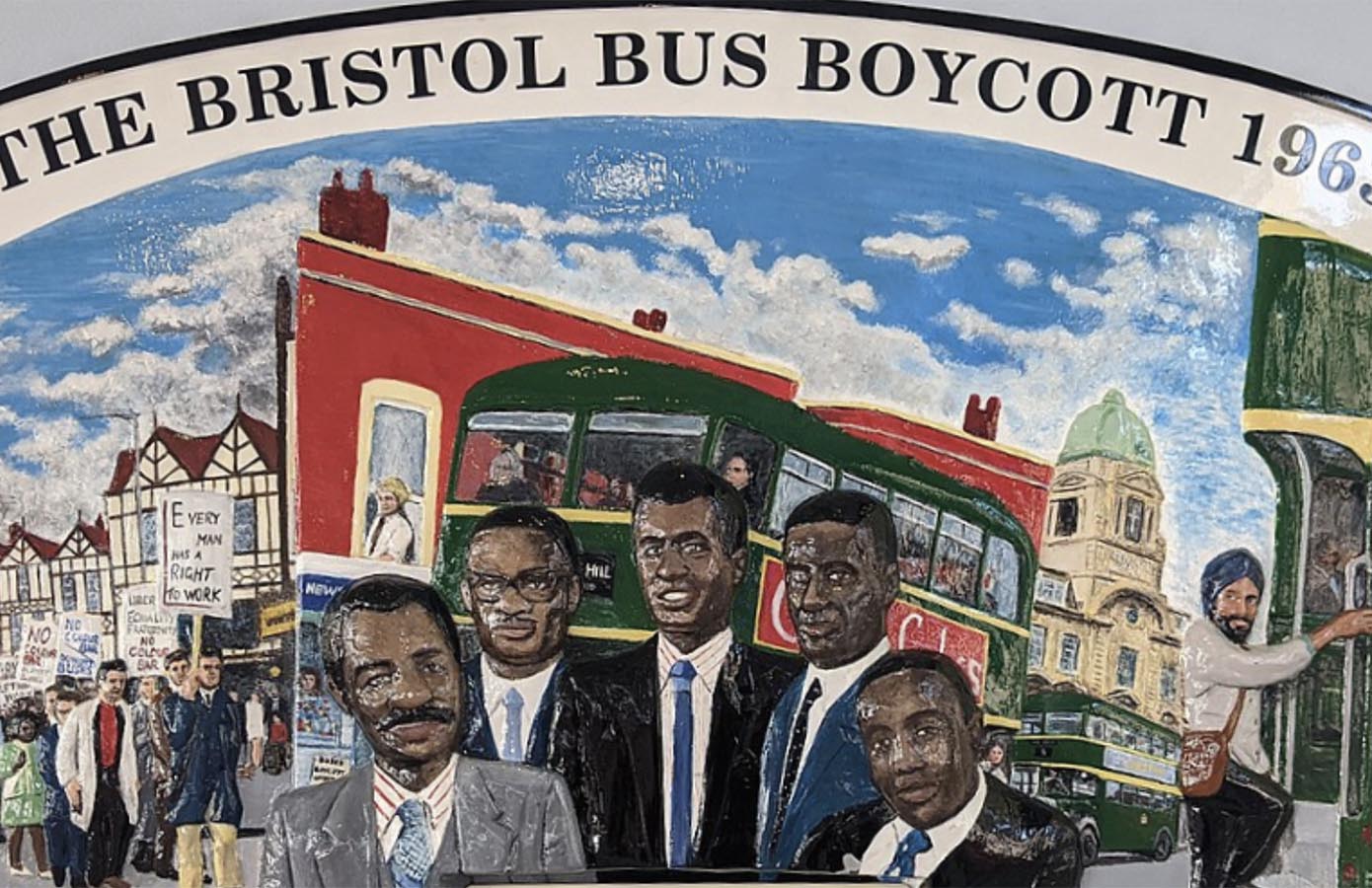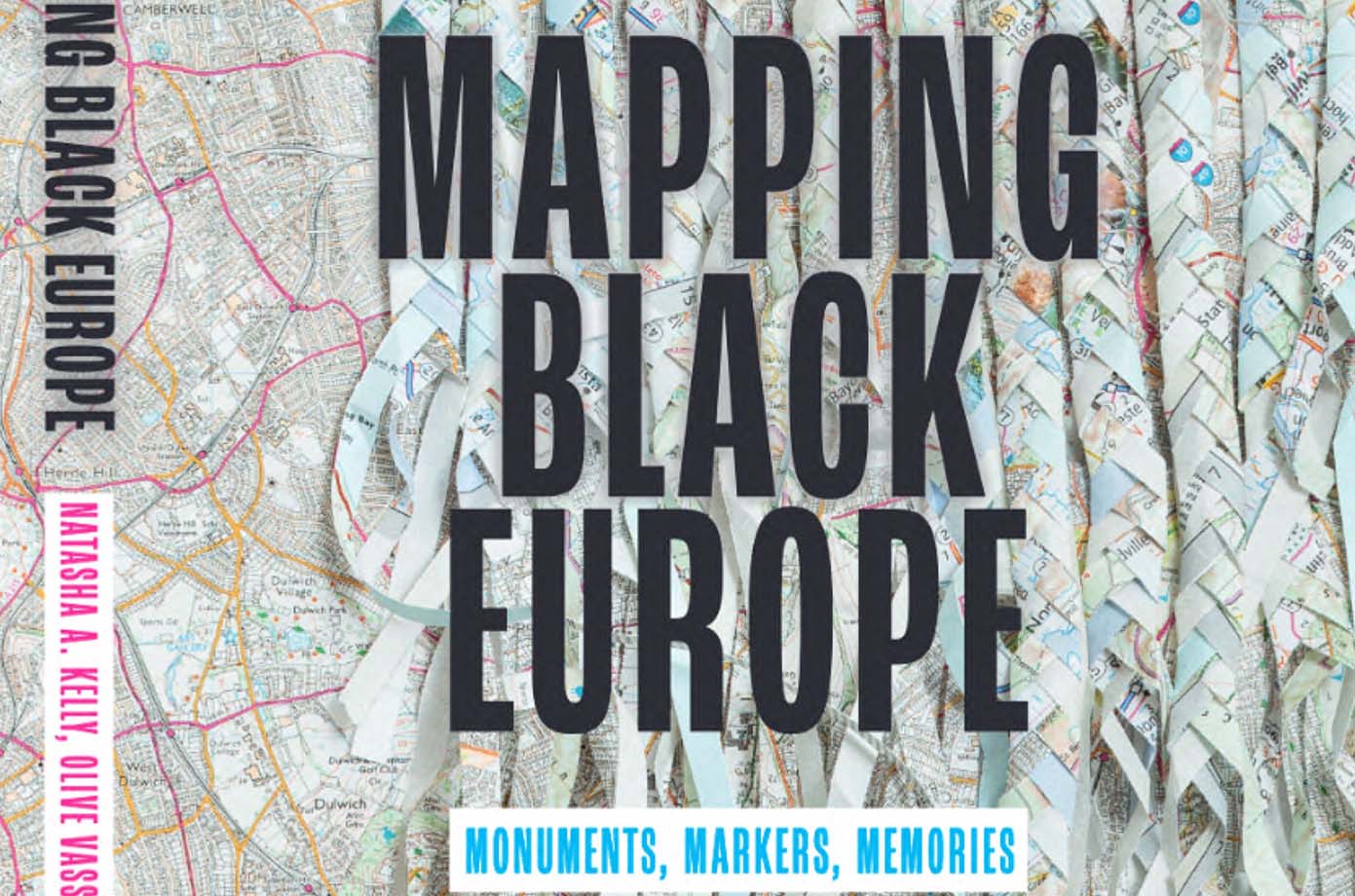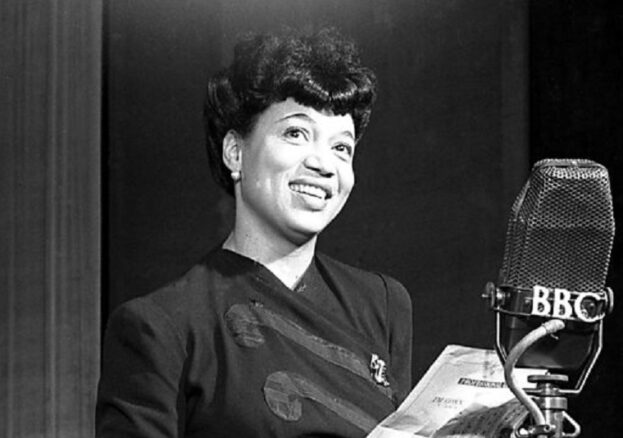
A plaque honouring the leaders of the Bristol Bus Boycott is in the city’s bus station. Courtesy photo.
The boycott that changed UK civil rights
by bbrit project
In Bristol’s busy bus station passersby are greeted by a colourful plaque. Front and centre stand five men, unknown to many, but key figures in an important moment in UK civil rights history. Paul Stephenson, Roy Hackett, Audley Evans, Owen Henry and Prince Brown were at the helm of the 1963 Bristol Bus Boycott that changed the racist policies of the Bristol Omnibus Company barring Black people from working on its buses. Another important figure, Guy Bailey, was used to test the existence of the colour bar by unsuccessfully applying for a job with the company.
The group’s actions would pave the way for the UK’s Race Relations Acts in the 1960s which banned all discrimination in the workplace and the UK 2010 Equality Act, protecting the rights of people across characteristics including race, gender, age, disability and sexual orientation.
The plaque honouring them was erected in 2014, and in 2023, the 60th anniversary of the event was marked with a new mural on the wall of an outdoor gallery on Jamaica Street in the city centre.
Other memorials have dotted the city including ones to Hackett and Henry – part of the Seven Saints of St Pauls, a series of murals dedicated to prominent Black community members in the area.
Some of the campaigners have also since been officially honoured – Dr. Paul Stephenson and Guy Bailey with OBEs and Roy Hackett with a MBE.
Watch this documentary which chronicles the boycott and features interviews from some of the original campaigners.
Elisabeth Welch, a name that resonates with timeless elegance and unparalleled talent. Born in 1904, Welch was a trailblazing African-American singer and actress who left an indelible mark on the entertainment industry. Her career spanned decades, showcasing her versatility in jazz, blues, and musical theater.
Welch’s voice was a mesmerizing instrument that transcended boundaries, captivating audiences on both sides of the Atlantic. From her early performances in the Harlem Renaissance to gracing London’s West End stages, Welch’s charisma and vocal prowess earned her widespread acclaim.
Beyond her musical prowess, Welch made history as one of the first African-American women to star in a British film during the 1930s. Her legacy is not only defined by her groundbreaking achievements but also by her resilience in the face of racial and gender barriers.
Elisabeth Welch’s journey is a testament to the enduring power of talent and tenacity. As we celebrate her contributions, let us remember and honor a woman whose artistry continues to inspire generations, leaving an indomitable legacy in the annals of entertainment history.








